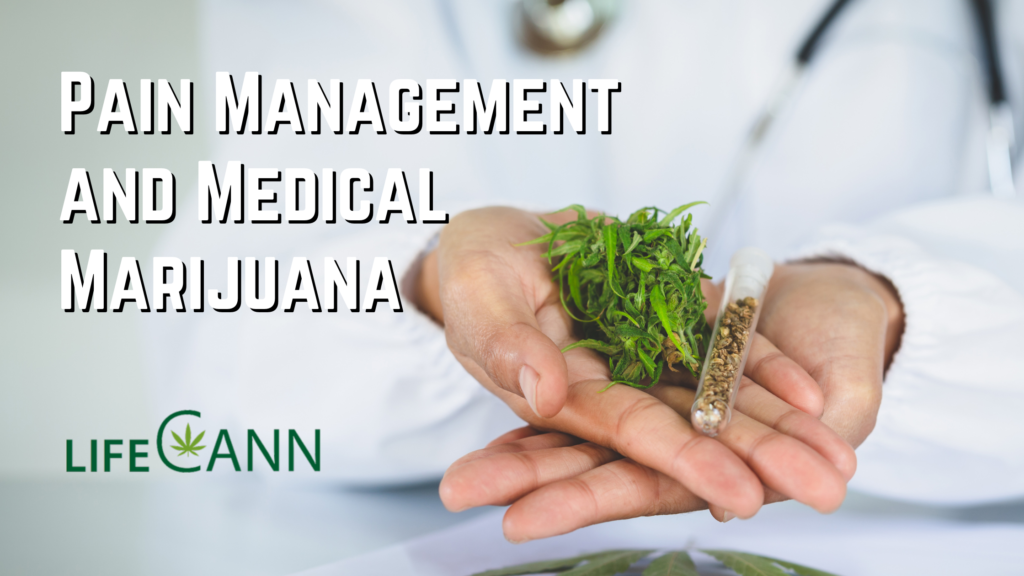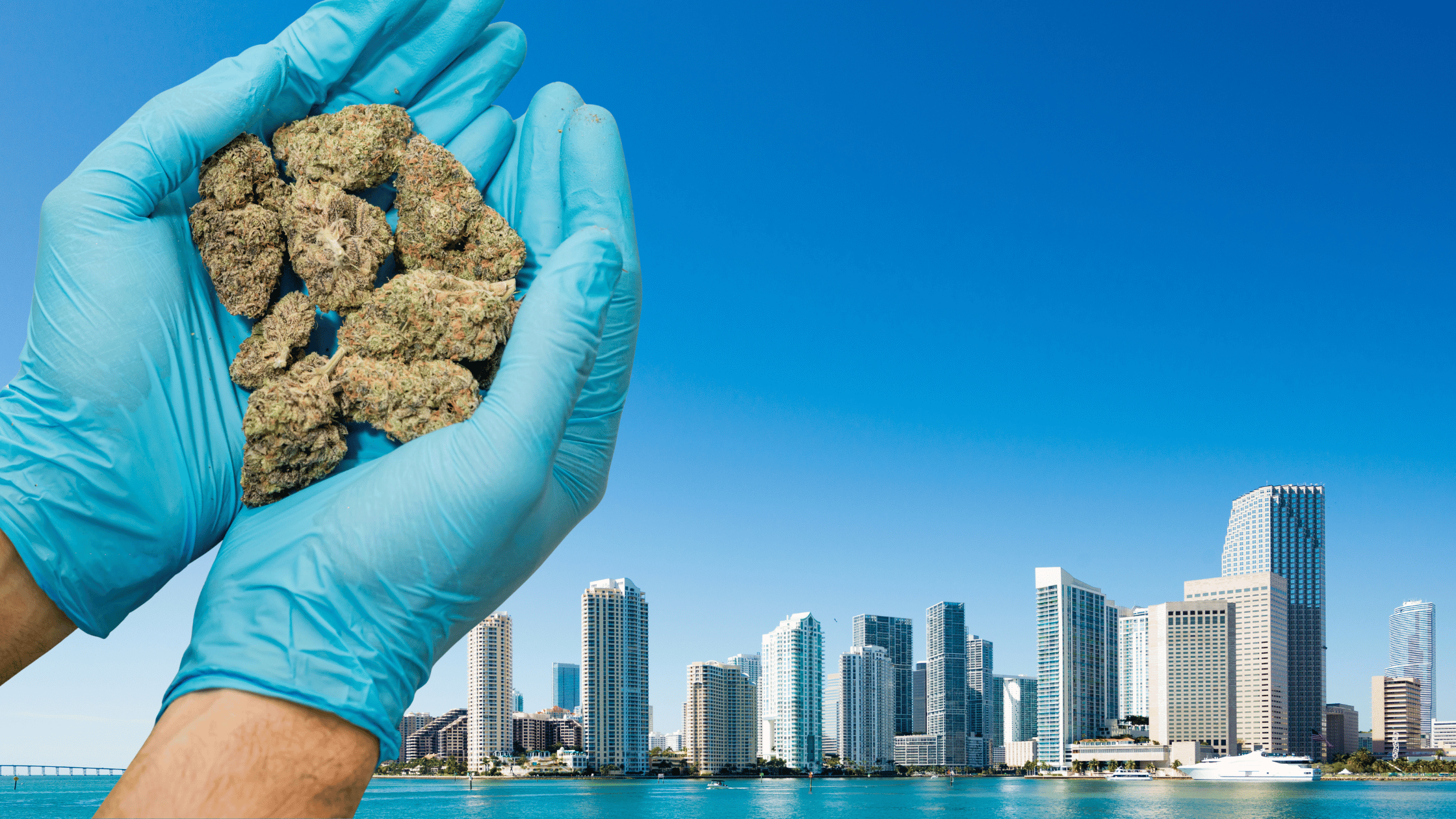
A Patient’s Guide to Pain Management with Medical Marijuana
Pain management is a critical aspect of healthcare, especially for individuals with chronic conditions. Medical Marijuana has long been a viable option for alleviating various types of pain. Many Florida qualifying conditions for Medical Marijuana treatment have been added due to the pain associated with the ailment and its success in relieving pain. At LifeCannMD, we aim to educate patients on how Medical Marijuana helps with pain management, the conditions it can help with, and how to choose the most suitable method of administration.
Medical Marijuana contains cannabinoids, primarily tetrahydrocannabinol (THC) and cannabidiol (CBD). These cannabinoids interact directly with the body’s endocannabinoid system (ECS) and effectively regulates pain and inflammation. While THC is known for its psychoactive effects, it effectively reduces pain by binding to cannabinoid receptors in the brain and nervous system and altering pain perception.
The non-psychoactive CBD can reduce pain and inflammation by interacting with receptors in the immune system and nervous system.
The synergistic effect of THC and CBD, often referred to as the “entourage effect,” can provide more comprehensive pain relief than either cannabinoid alone because they target different receptors within the endocannabinoid system.
Medical Marijuana can be effective in managing pain associated with various conditions. While pain relief isn’t a qualifying condition in Florida, we have successfully treated patients with pain under other qualifying conditions. Chronic non-malignant pain may qualify you for a Florida Medical Marijuana card. In Florida, there are many options available for pain management treatment.
- Chronic Pain: Conditions such as cancer, fibromyalgia, chronic back pain, and neuropathy can cause persistent pain that may be alleviated by Medical Marijuana.
- Arthritis: Both rheumatoid arthritis and osteoarthritis can lead to significant joint pain and inflammation, which Medical Marijuana can help manage.
- Multiple Sclerosis (MS): MS patients often experience muscle spasticity and pain, and Medical Marijuana can provide relief.
- Cancer Pain: Beyond pain from the disease itself, cancer treatments can cause significant pain and discomfort, which Medical Marijuana can help alleviate.
- Migraines: Chronic migraine sufferers may find relief through the anti-inflammatory and pain-relieving properties of Medical Marijuana.
- Post-Surgical Pain: Medical Marijuana can be an alternative to opioids for managing pain after surgery.
Selecting the right method of administration for effective pain relief is something you’ll want to discuss with Dr. Sende during your consultation. There are a lot of methods for treatment available. There are non-psychoactive methods for those who do not tolerate the euphoria very well.
The most popular method is by smoking. Marijuana joints or pipes provide rapid relief, typically within minutes and are useful for acute pain. Some patients find that it can irritate the lungs and we do not recommend this for patients with respiratory issues.
Vaping, similar to smoking, is the second most popular way to consume Medical Marijuana. It is a quick onset of effects and less harsh on the lungs compared to smoking. It also allows for precise dosing. We can point you in the right direction for a vaporizer. It may still irritate the lungs for some patients.
Edibles provide long-lasting effects and discreet consumption. Ideal for sustained pain relief. However if you are in acute pain, keep in mind that it has a low onset of effects (30 minutes to 2 hours). Dosage can be difficult to manage, and overconsumption may lead to prolonged psychoactive effects. We often advise patients to keep CBD oil on hand to counteract the psychoactive length of treatment.
Tinctures are fast-acting when taken sublingually (under the tongue), with effects typically felt within 15-45 minutes. It is easy to control dosage but may taste unpleasant for some patients. Having something like a piece of chocolate afterwards will make the taste dissipate.
Most topicals provide non-psychoactive, localized relief for pain and inflammation. Pain creams for arthritis and muscle pain have been very effective when taken over time. However, it is limited to treating pain in specific areas and not effective for systemic pain.
Capsules and pills are convenient and offer precise dosing. No need to inhale smoke or vapor.
While there is a slower onset of effects, similar to edibles (may take 1-2 hours to feel effects), they give the same benefits of edibles without the taste.
Transdermal patches provide a consistent, controlled release of cannabinoids over time and are suitable for chronic pain management. They are usually more expensive and less widely available than other forms.
Medical Marijuana offers our patients a promising alternative for pain management, especially for individuals seeking to avoid the side effects of traditional pain medications like opioids. Understanding how Medical Marijuana works, specifically the THC and CBD cannabinoids, the conditions it can help with, and the most suitable administration methods can empower patients to make informed decisions about their pain management options.
Always consult with Dr. Sende to develop a personalized treatment plan that takes into account your specific medical condition, pain management needs, and lifestyle. By doing so, you can achieve effective pain relief while minimizing potential side effects.


